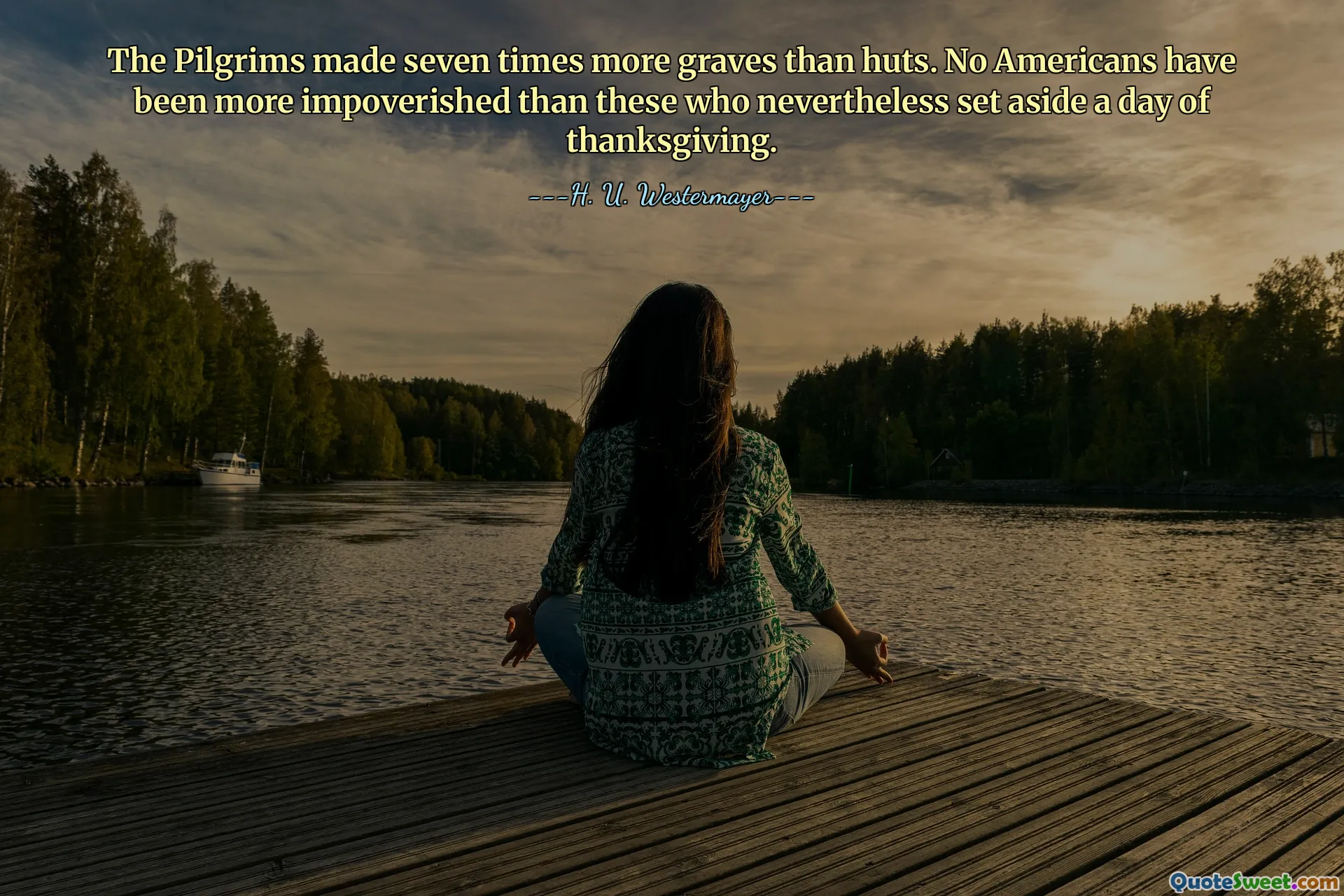
The Pilgrims made seven times more graves than huts. No Americans have been more impoverished than these who nevertheless set aside a day of thanksgiving.
This quote poignantly captures the profound hardship and resilience of the Pilgrims during their early settlements in America. The stark comparison between graves and huts highlights the mortality and suffering they faced—suggesting that death was far more common than the comfort of shelter in those harsh initial years. The fact that they buried seven times as many people as they built homes speaks volumes about the extreme challenges of establishing new lives in an uncharted and unforgiving land.
Yet, what stands out most is the recognition that even in the depths of poverty and despair, the Pilgrims chose to express gratitude by instituting a day of thanksgiving. This choice underscores a powerful human truth: gratitude is not dependent on material wealth or favorable circumstances but is instead a deliberate act of acknowledging what remains valuable despite difficulty. Their decision to celebrate thanksgiving amidst such adversity serves as an enduring lesson in hope, perseverance, and the human spirit’s capacity to find meaning and communal solidarity even in suffering.
Reflecting on this quote, I am reminded of how gratitude practices today often come from places of abundance. However, this historical perspective encourages a deeper appreciation for those who find reasons to be thankful when everything around them points to scarcity and loss. It invites us to rethink gratitude as a source of strength and resilience rather than just an expression of comfort. Ultimately, the Pilgrims’ example illustrates that even in our darkest moments, we can set aside moments to acknowledge and celebrate life, creating foundations for hope and renewal.











